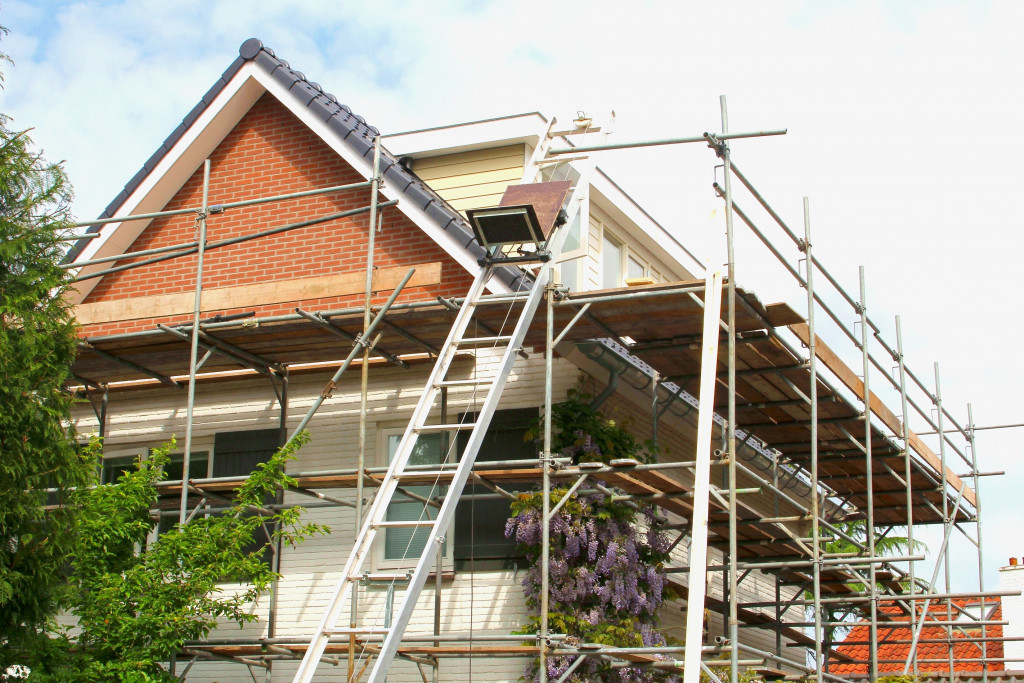- Define your goals and budget to create realistic expectations.
- Research and plan thoroughly to explore different designs, materials, contractors, etc.
- Hire reputable contractors with experience in building homes from scratch.
- Use quality materials that meet your standards and preferences.
- Communicate effectively with your team to address any issues or concerns.
You’ve decided to build your own home from scratch; congratulations! This is an exciting and rewarding journey but it can also be overwhelming. With so much to consider, it’s easy to feel lost in the process. However, you can create the home of your dreams with the right approach and mindset. This guide will cover the five essential tips for building your first home from scratch, guiding you through every step of the way.
1. Define Your Goals and Budget
Before starting any construction work, you must define your goals and budget. What type of house do you want to build? How big should it be? What style do you prefer? What are your priorities? Do you want a sustainable home or a traditional one? These questions will help you determine the project’s scope and establish realistic expectations.
Additionally, you need to define your budget. Building a home from scratch is costly, and you need to know the expenses involved. Consider not only the construction costs but also the land purchase, permits, inspections, and other fees that may apply. You can consult a reliable self-build planning consultant to help estimate your expenses and create a financial plan that aligns with your goals. A consultant will ensure you don’t exceed the budget and have enough resources to complete the project.
2. Research and Plan Thoroughly

Once you have defined your goals and budget, it’s time to research and plan your project. Take your time to explore different home designs, materials, and contractors. Look for inspiration in home design magazines, social media platforms, and home builder websites. Remember that every decision you make will affect the final outcome of your home, so choose wisely.
When planning your project, consider all the relevant factors, such as zoning laws, building codes, and environmental regulations. Before starting construction, you may need to obtain various permits and approvals. This process can be time-consuming, but it’s necessary to avoid legal issues down the road.
3. Hire the Right Contractors
Building a home from scratch is not a one-person job. You will need to hire a team of professionals to help you with the project. This includes architects, builders, electricians, plumbers, and other specialists. Make sure you research and hire reputable contractors who have experience in building homes from scratch.
When selecting contractors, consider factors such as their experience, certifications, references, and reputation. You may also want to ask for quotes from different contractors to compare prices and services. Hiring the right contractors ensures your project runs smoothly and within budget.
4. Use Quality Materials
The quality of the materials you use will directly impact your home’s durability, comfort, and appearance. Therefore, it’s essential to use high-quality materials that meet your standards and preferences. You don’t necessarily have to choose the most expensive materials, but you should select those that offer the best value for your money.
Here are some factors to consider when selecting materials:
Durability
When selecting materials, consider their durability and how well they will withstand wear and tear over time. Look for products certified as durable, such as those with a lifetime warranty or high-grade steel framing. If possible, research different materials to understand which ones offer the most longevity. Additionally, explore options that require minimal maintenance over time to reduce your long-term costs.
Energy Efficiency

Opting for energy-efficient materials can help you save money on utility bills in the long run. For instance, insulated walls instead of regular brick walls can significantly decrease your monthly energy bill. Similarly, double-glazed windows and doors can provide better insulation during cold months while allowing natural light to enter.
Maintenance
When selecting materials, consider how much effort you’ll need to put into maintaining them in the long run. Some materials may require more frequent cleaning and upkeep than others, which can add up over time. Look for products that are easy to clean, such as those with a low-maintenance finish or a protective coating. Additionally, avoid materials that deteriorate quickly due to weather exposure or general use.
Appearance
The appearance of your home is an essential factor when selecting materials. Choose colors and textures that will complement each other throughout your space. In addition, select products that offer design flexibility so you can easily make changes if needed in the future. If possible, look for customizable materials to create a unique, one-of-a-kind look that reflects your style.
5. Communicate Effectively With Your Team
Last but not least, effective communication is critical to the success of your project. You must maintain open and honest communication with your contractors and team members throughout the construction process. This will help you promptly address any issues or concerns and avoid costly mistakes.
Establish clear communication channels, such as email, phone, or face-to-face meetings. Set realistic expectations and deadlines, and ensure everyone is on the same page. Make sure you promptly communicate any changes or updates and be open to feedback from your team members. Effective communication is the key to building a successful home from scratch.
Final Words
Building a home from scratch is not easy but rewarding. Following these five tips, you can create the perfect home that reflects your style and meets your needs. Research and plan thoroughly, hire reputable contractors, use quality materials, and communicate effectively to ensure a smooth construction process.

